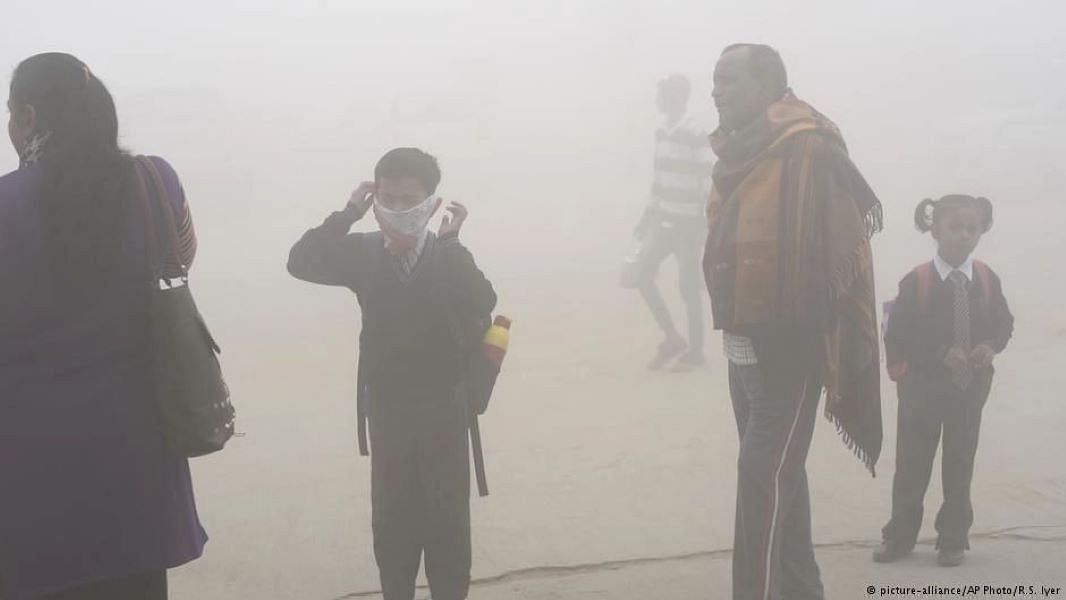Bursting crackers on Diwali is a ‘time-honoured tradition’, we’ve been told, and meddling with traditions—some more than others—can have dire consequences, we have been warned. Such is our ardour for this tradition that we have no means left, it seems, of convincing people of its terrible aftereffects; they are almost too well known to bear repetition. Our traditions are non-negotiable, even when they are clearly at odds with common sense.
We might complain about the unbearable air quality of our cities, but we cannot be coaxed into doing our bit to pollute less. That is someone else’s responsibility— the government’s, for example. Appeals fall on deaf ears, bans invite derision and open defiance.
Sociologists may have an explanation for our proclivity to bend/ defy rules. This Diwali the Delhi government even ran advertisements announcing a ban, with accompanying warnings of fines and even imprisonment. But even that didn’t deter our determined crackerati.
It’s possible the ban on firecrackers in the National Capital Region (NCR) was not communicated sufficiently in advance, but it’s also plausible that the ban was really an exercise in managing perceptions. The government had to be seen to be doing something about the pollution but was not willing to risk a backlash from a real crackdown on sale and/or use. Four hundred teams had been formed, the Delhi government said, to enforce the cracker ban, half of them by Delhi Police.
Between them they managed to arrest six people, which tells you something about the seriousness of intent. The courts too have made an annual ritual of issuing directions before the festival and making some critical remarks after, but clearly to no avail. According to some estimates, the ban and accompanying punitive threats reduced both sales and use of firecrackers in the NCR by 30 per cent.
Unsurprisingly, the Air Quality Index (AQI) in Delhi plunged to 312 the morning after Diwali. That was reportedly the best it has been in the past four years on the morning after and yet the air quality was ‘Very Poor’. (AQI of 50-100 is considered ‘Good’.
) The air pollution in our cities is not all about firecrackers, of course, but our civic response to its contributory role is quite revealing. To effectively manage air pollution, we also need to check vehicular and industrial emissions, construction and road dust, and stubble burning in neighbouring states, all of which spew toxins into the city air. The air we breathe is still free though clean air is becoming a rare privilege not everybody can enjoy or afford.
The right to clean air is now acknowledged as a basic human right and our national capital ranks among the 10 most polluted cities in the world. As many as 22 Indian cities featured in the list of 30 most polluted cities prepared by Swiss organisation IQAir in 2021. A study published in the Lancet Respiratory Medicine Journal in 2015 estimated that 800,000 Indians died of Chronic Obstructive Pulmonary Disease (COPD) and 100,000 of asthma in 2015.
The next year the ‘Global Burden of Disease’ data reported that while India had 18 per cent of the world’s population, it accounted for 32 per cent of patients of respiratory diseases. Ambient air pollution and household air pollution, besides smoking, were identified as the main reasons for the respiratory diseases. The National Health Policy in 2017 set a target of reducing the incidence of respiratory diseases by 25 per cent by 2025, but that target is another pie in the sky.
India’s push towards clean energy has been half-hearted at best and the country looks destined to depend on polluting fossil fuels for a long time to come. The public transport networks in our big cities are nowhere near good enough to discourage the use of private vehicles. Also, being on an upswing on the aspirational-consumption curve, we keep adding more and more private vehicles to our roads every day.
Gimmicks like smog towers and smog guns will not fix that problem. .
From: nationalheraldindia
URL: https://www.nationalheraldindia.com/india/herald-view-bracing-for-a-toxic-winter



